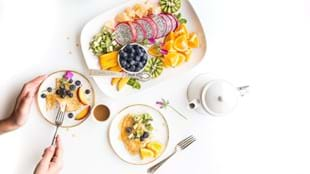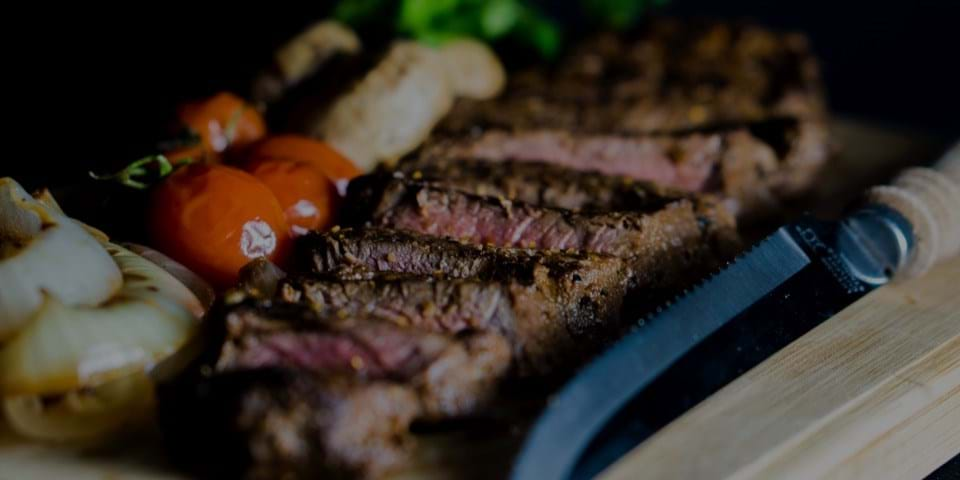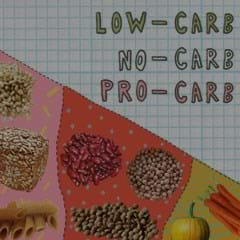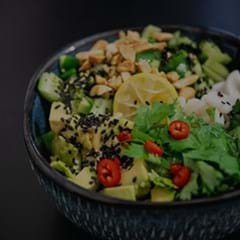Being vegan is hot right now, as any glance at the news or social media will confirm. All over the world, people are abandoning their animal-eating ways and switching to a plant-only diet. Plant-based proteins are seeing huge growth and investment, and vegan-friendly options are popping up everywhere from the corner café to the supermarket aisle.
A huge driver of this is concern for animals and the environment. The EAT-Lancet report published earlier this year called for fundamental change to the global food system in order to keep the planet and its people sustained beyond the next 50 years. Chief among its recommendations was to significantly lower intakes of red meat and dairy. Given the ideal red meat intake, according to the report, is just 16 grams a day (the equivalent of one small steak a week), for many it’s just as easy to go meat-free.
But the other reason for people turning vegan is that it can be better for our health. Less meat and more plants in your diet lowers the risk of various lifestyle diseases, as well as several cancers, and may potentially help us live longer. Eating mostly plants is a consistent habit of most of the world’s healthiest populations.
Despite the pale and slightly sanctimonious stereotype, modern vegans are more savvy than their caricatured predecessors. They know that to perform at a high level – whether it’s in life or in sport – they need to pay attention to balanced nutrition. Get it right, and a vegan diet can keep you just as fit and active as a meat-based one, even if you’re training at a high level. It just needs planning and thought.
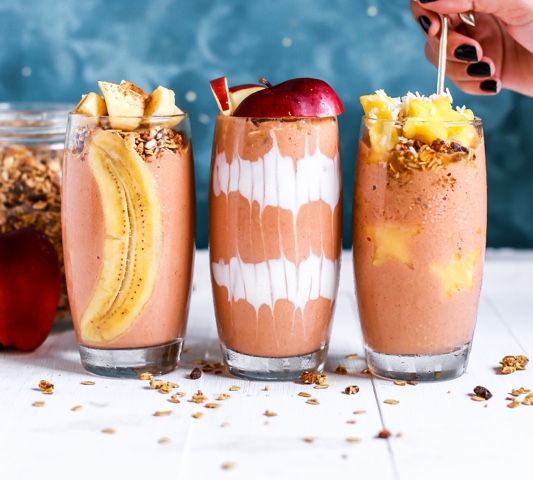
So how can you be a fit, active and vital vegan? Here are five things to keep in mind …
1. Don’t just give up things
Don’t just take the meat off the plate and eat the rest – that’s a recipe for hunger and potential deficiencies (and probably where the grey-faced vegan stereotype comes from). Ideally, animal foods need to be replaced with quality, whole food substitutes. So instead of meat, chicken, fish and eggs, protein can come from plant proteins such as soy-based tofu and tempeh, legumes and pulses, nuts, seeds and occasional manufactured vegan proteins (the burgers, sausages and faux chicken products).
2. Go for quality
Although vegan eating has a bit of a health halo, it’s perfectly possible to eat an unhealthy vegan diet. The food industry is onboard with the trend towards veganism, and they’re meeting the demand with vegan-friendly junk food. But just as with a non-vegan diet, if we’re eating mostly processed foods we’re likely not getting the best possible nutrition. So keep the vegan burgers, pizzas, ice-creams, sweet treats and ready-meals to occasional purchases, and make your diet mostly whole, fresh foods.
3. Keep an eye on protein and iron
If you’re exercising regularly, you’ll need good, regular intakes of protein throughout the day. If you’re not getting it from animal sources, you’ll need to make sure you’re getting it from the plant food you’re eating – which is not difficult, but will need a bit of planning. An average woman needs between 78 grams and 130 grams of protein each day. You can get there by getting a wide variety of plant protein foods: include nuts, seeds, whole grains, pulses such as chickpeas, beans and lentils, tofu and tempeh. When you’re choosing alternative milks such as soy or almond milk, go for ones with extra protein and iron added.
4. Top up after training
If you’re working out hard, post-training protein is useful; evidence suggests eating 10-20 grams of high-quality protein within a couple of hours of completing your training can help muscle recovery. You’d get 10 grams of protein from a slice of wholegrain bread with (vegan) peanut butter and a small glass of fortified soy milk, half a cup of edamame beans, a good handful of mixed nuts or a serving of pea-based protein powder mixed with water or soy milk.
5. Consider supplements
You can get almost everything you need in terms of vitamins, minerals and nutrients from a well-planned vegan diet. There’s one exception: the essential vitamin B12. We need B12 for normal growth and development, healthy functioning of the nervous system and cell division. A deficiency of B12 can cause tiredness, anaemia, tingling and numbness of the extremities, memory loss, disorientation and even dementia. Vegans usually need this in supplement form, although you can get it in some foods that are fortified, such as cereals and milks. If in doubt, check the labels. And check with your doctor if you’re worried.
Niki Bezzant is a New Zealand-based food writer, editor and commentator. She is the founding editor (now editor-at-large) of Healthy Food Guide magazine, and is currently president of Food Writers New Zealand and a proud ambassador for the Garden to Table program which helps children learn how to grow, cook and share food. She is a member of the Council of Directors for the True Health Initiative, a global coalition of health professionals dedicated to sharing a science-based message of what we know for sure about lifestyle and health.
If you want more health and fitness inspiration simply sign up to Fit Planet and get the freshest insights and advice straight to your inbox.



